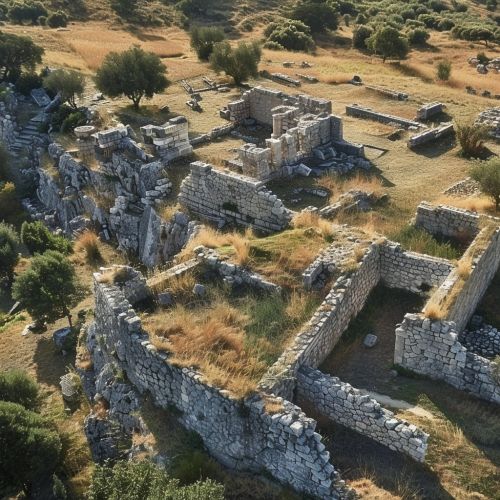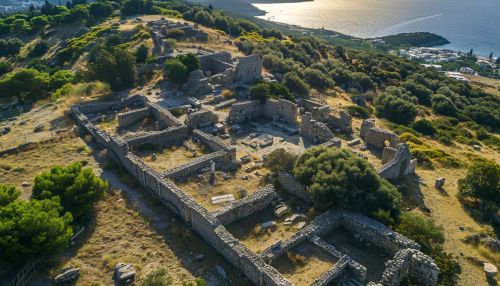Ionian League
Overview
The Ionian League was a confederation of ancient Greek city-states located along the western and southern coasts of Asia Minor (modern-day Turkey), as well as the adjacent islands, particularly the large island of Lesbos. The league was named after the region of Ionia, where these city-states were located. The Ionian League was notable for its democratic structure, its promotion of shared cultural identity among its members, and its influence on the development of Greek philosophy, science, and art.


Historical Context
The Ionian League was established during the Archaic Period of ancient Greece (800-500 BC), a time of significant political, economic, and cultural changes. The formation of the league was a response to the shared challenges and opportunities faced by the Ionian city-states, including the threat of Persian expansion, the growth of maritime trade, and the spread of new ideas and practices from the wider Greek world.
Formation and Structure
The Ionian League was formed through a process of voluntary association and mutual agreement among the city-states. Each city-state retained its independence and autonomy, but agreed to cooperate with the other members of the league on matters of common interest. The league was governed by a council (known as the Panionion), which was composed of representatives from each city-state. The Panionion met regularly at a central sanctuary dedicated to Poseidon, the patron god of the league.
Cultural and Intellectual Achievements
The Ionian League was a major center of cultural and intellectual activity in the ancient Greek world. The city-states of the league were home to many of the most important figures in Greek philosophy, science, and art. These included the philosopher Thales of Miletus, the mathematician Pythagoras, and the poet Sappho. The league also played a key role in the development of the Ionic dialect of Greek, which became the standard form of the language used in literature and scholarship.
Decline and Legacy
The Ionian League declined in power and influence during the Classical Period of ancient Greece (500-323 BC), due to a combination of internal conflicts and external pressures. However, the league left a lasting legacy in the form of its cultural and intellectual achievements, which had a profound impact on the development of Western civilization.
